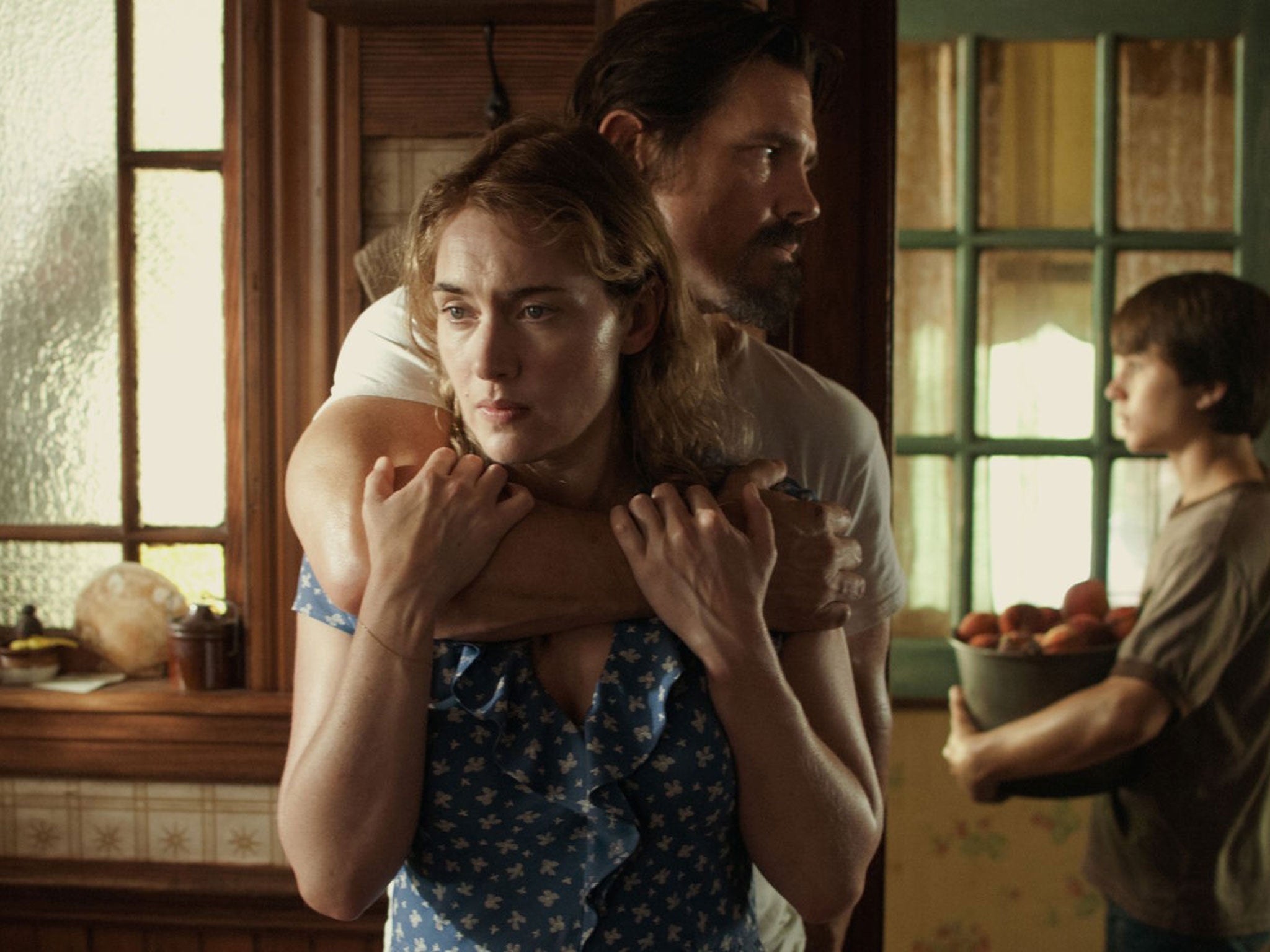Labor Day, film review: Kate Winslet excellent as tormented mother
Jason Reitman, 111 mins Starring: Kate Winslet, Josh Brolin, Tobey Maguire, Tom Lipinski

Labor Day is a beautifully crafted, evocative and very well acted coming-of-age story which is just a little bit... preposterous. On a second viewing, you can’t help but notice its many improbabilities.
Josh Brolin plays escaped convict Frank Chambers, a better-looking, more rugged version of Magwitch from Great Expectations, who lays low over Labor Day weekend in the home of single mom Adele Wheeler (Kate Winslet) and her adolescent son, Henry (Gattlin Griffith.)
Frank is an alpha male but one in touch with his feminine side. Although he is badly injured and on the run from the law, he still manages to wax the floor, fix the car, bake a peach pie and teach the neighbour’s wheelchair-bound son how to play baseball.
Inevitably, after such a display around the house, Adele falls in love with him. They do the laundry together. He irons and, in return, she teaches him rumba.
We learn Frank’s back story – he is a Vietnam veteran who accidentally killed his wife – in sketchy, impressionistic flashbacks. The plotting never quite stacks up. If you were a hardened criminal, on the run from the law, would you really spend so much time on planning a barbecue?
The film is adapted from a novel by Joyce Maynard (who, as a young woman, had an affair with J D Salinger). It has a self-conscious, dream-like quality. Its narrator, Henry (played as an adult by Tobey Maguire), is remembering a few happy days during an otherwise unhappy childhood.
Winslet is excellent as his beautiful and tormented mother. “I could feel her terrible loneliness and longing before I had a name for it,” Henry says of her in the tremulous voice-over that sets up the film.
Brolin is very strong, too, as the stranger she falls in love with. Some of the writing here is novelettish (“there’s another kind of hunger – the hunger for human touch.”) The film, though, is best taken as a nostalgic fantasy – an attempt on Henry’s part to conjure up the mother he adored and the father figure he never really had.
Subscribe to Independent Premium to bookmark this article
Want to bookmark your favourite articles and stories to read or reference later? Start your Independent Premium subscription today.

Join our commenting forum
Join thought-provoking conversations, follow other Independent readers and see their replies